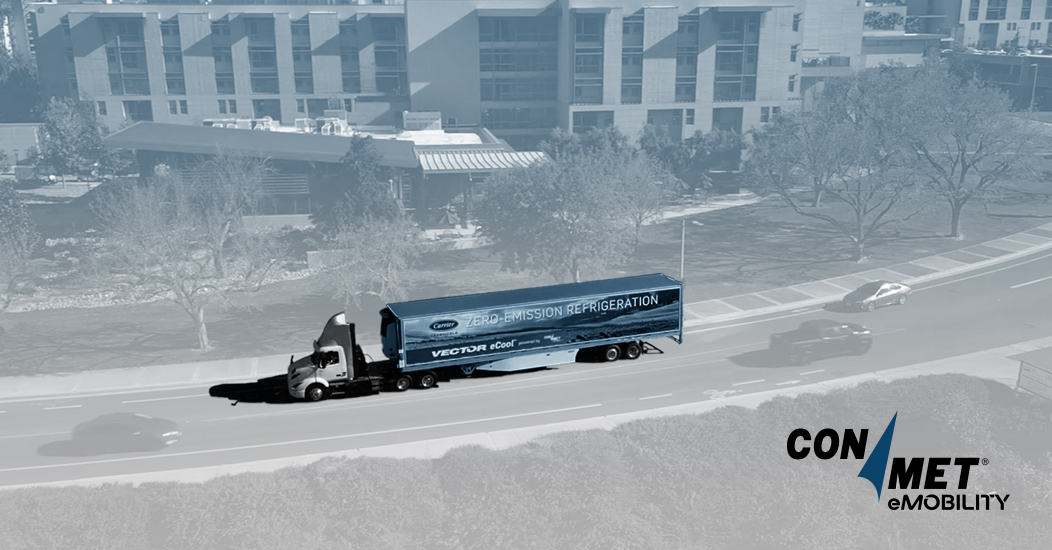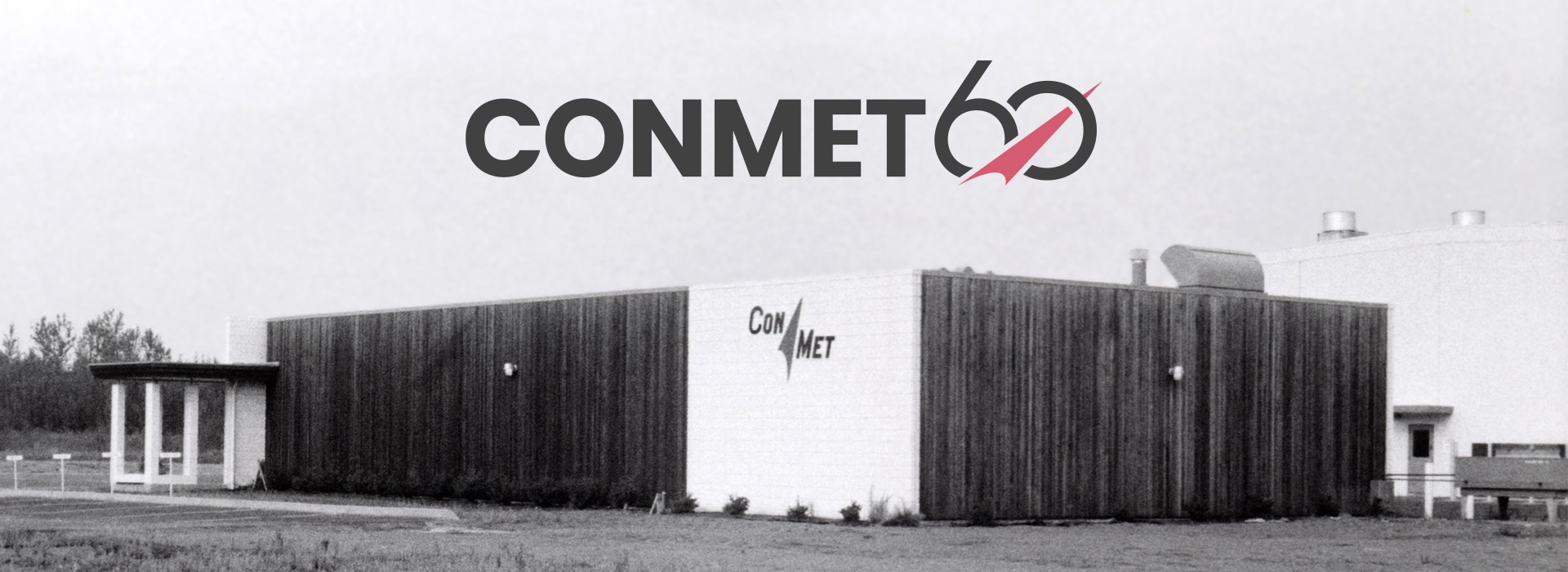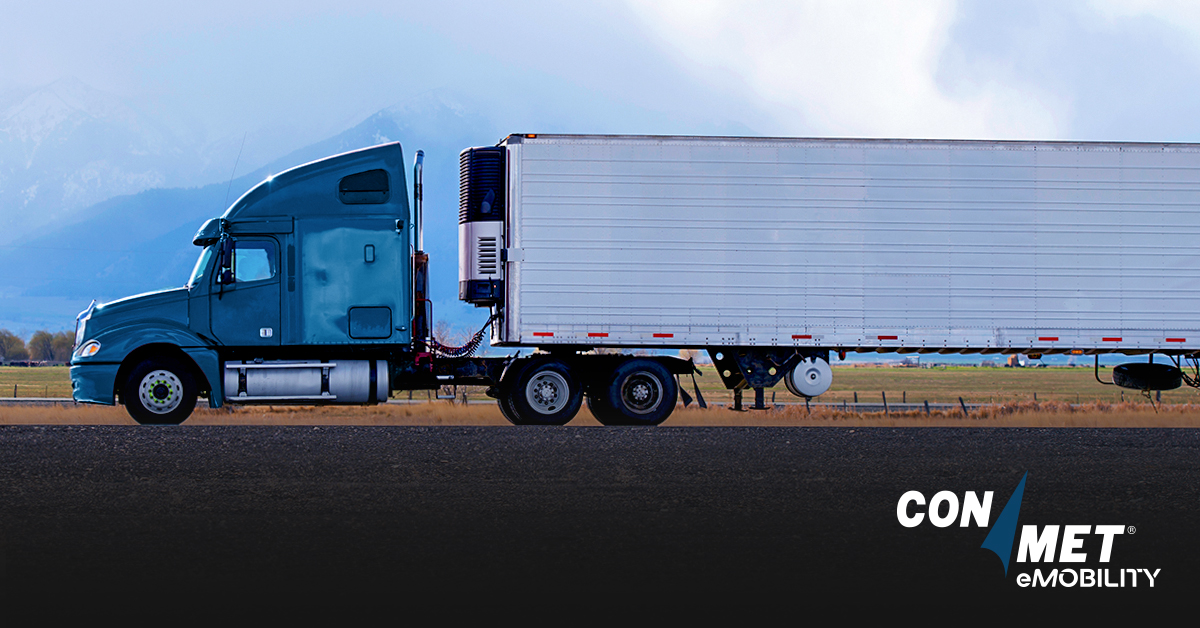June 2023 – Commercial vehicle fleets face mounting pressure to reduce emissions of greenhouse gases, including carbon dioxide, which stem from the use of diesel fuel. While commercial vehicle electrification has gained traction in the passenger car market as an alternative to fossil fuels, implementing it across entire fleets of Class 8 tractors can prove complex and expensive. However, recent advancements in technology are providing immediate emission reduction solutions by electrifying specific vehicle systems, such as the fuel-intensive Transport Refrigeration Units (TRUs). Electrifying TRUs offers substantial advantages, propelling fleets closer to their sustainability goals at an accelerated pace.
The advantages of electrifying TRUs
TRUs play a critical role in transporting essential goods such as food, medicines, and other temperature-sensitive items while ensuring their safe storage. Because of specific temperature demands of the goods, TRUs can idle 24 hours a day for up to weeks at a time. This leads to excessive fuel consumption and increased air pollution, particularly in the densely populated urban areas that TRUs tend to run in, such as near grocery stores or schools. By electrifying TRUs, fleets can eliminate the emissions associated with diesel-generated idle time and significantly reduce their impact on the local air quality, especially those in disadvantaged communities.
In addition, traditional diesel-powered TRUs have a lot of moving parts which require frequent maintenance such as vibrasorbers, clutches, shaft seals, belts and pulleys. Electric-powered systems generally require less maintenance and operate more efficiently, resulting in reduced costs and an overall increase in fleet sustainability.
Considerations for seamless fleet integration
Introducing electric TRUs can be much easier for a fleet than incorporating electric tractors, with cost and infrastructure needs being major factors.
First, purchasing a new electric reefer trailer is less expensive than purchasing a new electric tractor. This affordability allows fleets to make significant progress in their sustainability goals with a smaller investment than a new tractor. Upfitting or retrofitting existing trailers is also a much simpler and cost-effective task than purchasing new electric tractors.
The infrastructure requirements for electric TRUs are minimal, as they can connect to standard 208V or 480V plug-ins. This eliminates the need for specialized charging infrastructure or significant investments, enabling fleets to adopt electric TRUs quickly, reducing implementation costs and logistical complexities.
Delivering real-world fuel savings and emissions reductions
ConMet eMobility has partnered with Carrier Transicold, a pioneer in transport refrigeration, to bring zero-emission refrigeration to North America. Carrier’s Vector eCool™ system is powered by ConMet eMobility’s nMotion™ TR 160-45, which utilizes PreSet Plus eHub™ technology to capture kinetic energy using in-wheel electric motors. When the vehicle is in motion the eHubs transform the kinetic energy into usable electricity that can power the TRU or be stored in the system’s battery for future use. The lightweight system is retrofittable on any Carrier Vector series and its modular design works with most existing trailer configurations.
Whether a new build or retrofit, integrating this advanced system into everyday operations is seamless. Drivers simply turn on the system and go, with no other change to their daily routines. In the event of a discharged battery or power interruption, the Vector eCool systems includes a diesel fail-safe mechanism to ensure costly goods are always kept at the proper temperature and operations are not disrupted.
The real-world results from commercial evaluation programs are already demonstrating significant fuel savings and reductions in greenhouse gases and pollutants. Recent applications include grocery delivery, food service delivery, and shuttling between distribution centers. Though each application has specific route requirements, idle times, and usage, each Vector eCool system powered by ConMet eMobility is showing the potential to save up to 4,000 gallons of diesel fuel annually and eliminating up to 450,000 grams of nitrogen oxides, 90,000 pounds of carbon dioxide, and 16,000 grams of particulate matter.
It’s clear that electrifying TRUs presents a path for commercial vehicle fleets to accelerate their sustainability goals. Commercial vehicle electrification addresses the specific challenges posed by TRUs, such as excessive fuel consumption and emissions during idle time, and the implementation of electric TRUs pose few – if any – obstacles. By incorporating electric TRUs into their operations, fleets can drive sustainability forward with immediate impact while ensuring the safe and efficient transportation of essential goods.
VANCOUVER, WA | by Marc Trahand, VP – eMobility


